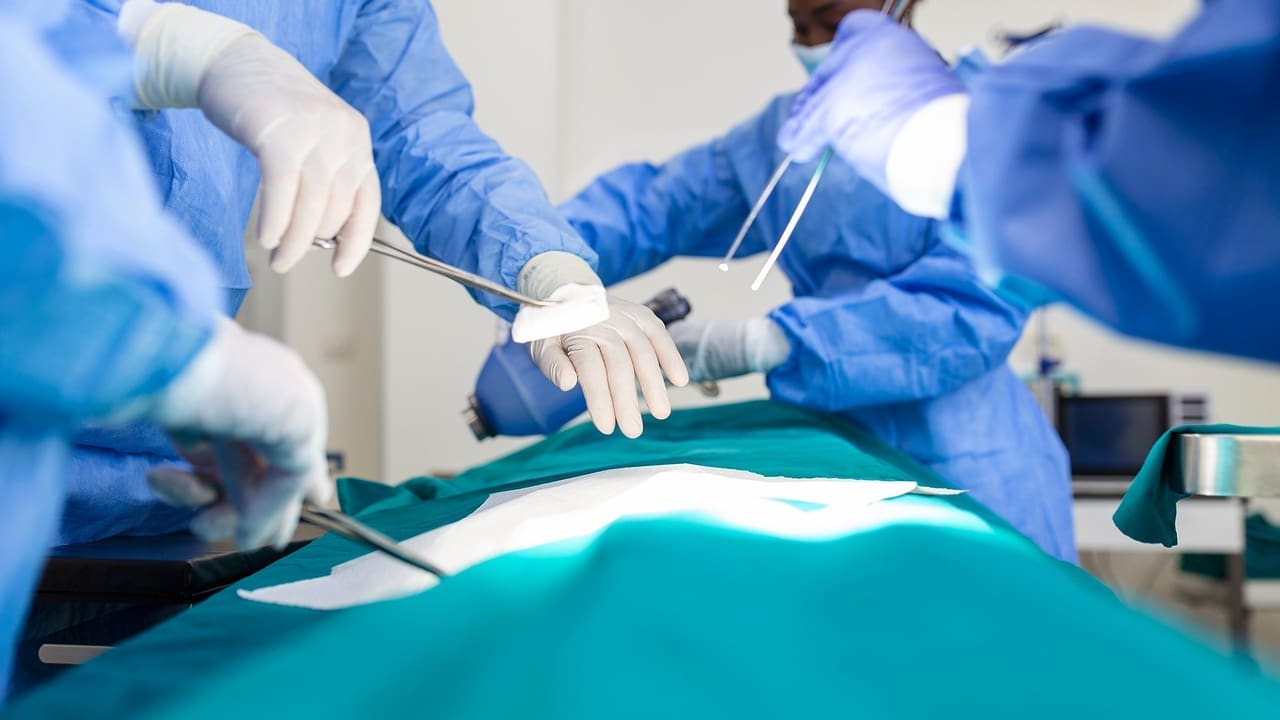General Surgery Means
General surgery is the specialty that evaluates and treats a wide range of conditions involving the abdomen, digestive tract, skin and soft tissues, breast, and endocrine organs. What is considered general surgery? Common conditions include hernias (inguinal, umbilical, ventral), gallstones and gallbladder disease, appendicitis, reflux related issues, hemorrhoids and anal fissures, colon and rectal disorders, thyroid and parathyroid problems, and skin/soft tissue masses.
When to see a general surgeon: if you have a persistent groin or abdominal bulge, right upper abdominal pain after meals, sudden severe abdominal pain, rectal bleeding, long standing heartburn, or a new lump that’s growing or painful. Our clinic provides evaluation, imaging when needed, and a clear, patient centered treatment plan.

What surgeries do general surgeons do? Examples include:
- Hernia repair (inguinal, umbilical, ventral) via open, laparoscopic, or robotic techniques
- Gallbladder removal (laparoscopic cholecystectomy) for gallstones and biliary colic
- Appendix removal (appendectomy) for appendicitis
- Colon surgery for diverticulitis, polyps, and colorectal cancer
- Hemorrhoid procedures and anorectal surgery
- Thyroid and parathyroid surgery
- Excision of skin and soft tissue lesions (lipomas, cysts)
Port placement and minor outpatient procedures. We focus on minimally invasive techniques whenever
possible, which can mean less pain, smaller incisions, and a quicker recovery.
Does Hernia Surgery Require General Anesthesia? Options and Safety Explained
Many laparoscopic and robotic hernia repairs use general anesthesia for comfort and safety. Some open inguinal hernia repairs can be done with local anesthesia and sedation or regional blocks. Your anesthesia plan depends on the hernia type and size, the surgical approach, your health, and your preferences. Our surgical and anesthesia teams tailor the safest option and review risks, benefits, and recovery timelines with you.

When surgery is needed for the abdomen, breast, soft tissue or endocrine organs, you deserve clear and understandable guidance: what issues are causing it, why this procedure is recommended, and how the process works.
How to Prepare for Surgery With General Anesthesia: Fasting, Medications, and Recovery Tips
Fasting: Carefully follow your instructions. Usually, you should not eat solid food for 6 to 8 hours before surgery, but you may be able to drink clear liquids until a certain time.
Medications: Bring a complete list. Ask about blood thinners, diabetes medications, and supplements. Some may need to be paused, while others should be continued.
Lifestyle: Avoid smoking and alcohol pre op to reduce anesthesia and wound risks.
Illness: Inform us of new symptoms (fever, cough, infection) before surgery.
Day of surgery: Wear comfortable clothing, remove jewelry, and arrange a ride home. Plan light activity and rest for 24 hours post op. These steps support a smooth anesthesia experience and recovery.
How Long Is a General Surgery Residency, and Is General Surgery Competitive?
In the U.S., training usually takes five years, and many surgeons go on to complete additional fellowships, such as in minimally invasive, colorectal, or breast surgery. Is general surgery competitive? Yes. The comprehensive training gives surgeons broad experience in emergencies, inpatient care, and surgical techniques. For patients, this means care from
teams with rigorous, standardized training focused on safety and good results.
What Does General Surgery Include? From Diagnosis to Laparoscopic and Robotic Care
A full evaluation of symptoms, targeted testing (labs, ultrasound, CT/MRI, endoscopy when indicated), and a personalized plan. Many procedures can be laparoscopic or robotic, which may offer less pain and a quicker return to activities. We discuss benefits, risks, alternatives, and recovery so you can make an informed decision aligned with your goals.
How Many Surgeries Does a General Surgeon Do a Day? Experience and Patient Safety

It varies with case complexity and scheduling. A day may include several short outpatient procedures or one to two longer operations. We balance efficiency with preparation, safety checks, and recovery needs. Consistent case volume helps maintain skills while keeping patient safety our top priority.
For more information about our academic and training initiatives, visit Liv Hospital Academy.
Frequently Asked Questions for General Surgery
Is general surgery a good specialty for patient care?
Yes. General surgeons offer accessible, evidence based care and use minimally invasive techniques
when possible. This approach helps patients recover faster and achieve better results.
How many surgeries does a general surgeon do a day?
It depends on the case mix and complexity. Schedules are designed to prioritize safety, quality, and
adequate recovery time.
Is general surgery competitive?
Yes. The training pathway is rigorous, which benefits patients through standardized safety practices and
broad operative experience.
How long is a general surgery residency?
The duration is typically five years, with many surgeons pursuing additional fellowship training for
subspecialty expertise.
How do I prepare for surgery with general anesthesia?
Follow fasting instructions, review medications with your team, avoid smoking/alcohol, report any
illness, and arrange transportation and recovery support.
Does cataract surgery require general anesthesia?
Usually, no local anesthesia with light sedation is standard; general anesthesia is reserved for specific
circumstances.
Is general anesthesia used for hernia surgery?
Yes, commonly for minimally invasive hernia repairs; alternatives may be available for select cases.



